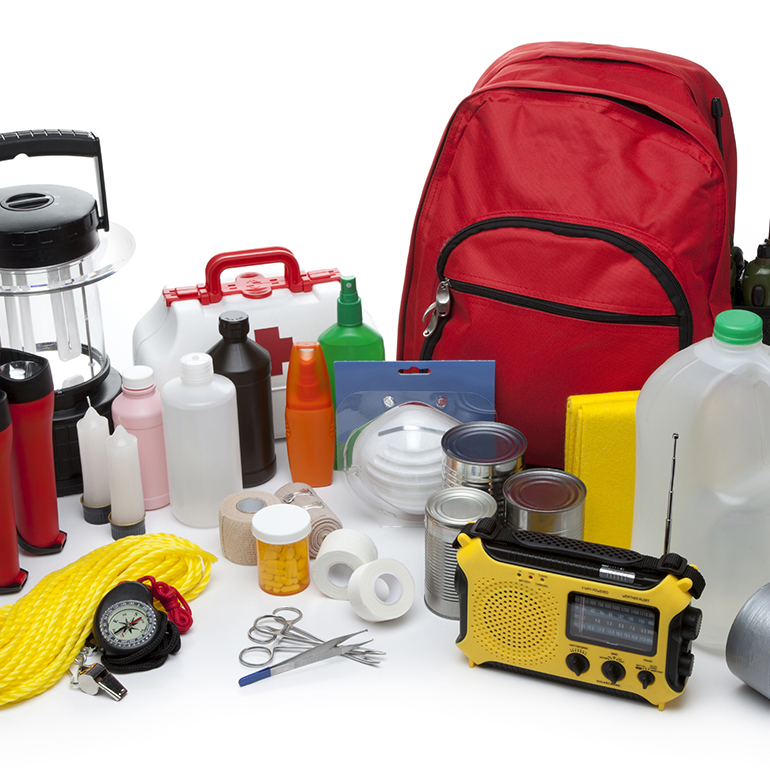Many residents who don’t live in an evacuation zone may decide to ride out the storm at home. Those who are in poor health, are elderly, or are in the last trimester of pregnancy should consider evacuation — but for the rest, here are tips to help you more effectively shelter in place.
Preparation
- Stock up on disaster supplies, including water, non-perishable food, and battery-powered lights, and place them in a central room that is best protected from the storm.
- Place your refrigerator and freezer on their coldest settings, and then keep them closed as much as possible so food inside will last longer if power goes out.
- Fill clean large containers with water for drinking. Fill bathtubs with water to be used to
flush toilets and for other sanitation purposes (NOTE: This water is not safe for drinking). - Secure propane tanks so they will weather the storm, but keep them accessible in case you need them to boil water, heat canned goods, or cook food.
- If you have a generator, fill all gas containers and secure them safely in a place that’s easily accessible after the storm.
- Fill the gas tanks of all vehicles in case gasoline supplies run out after the storm.
- Unplug small appliances that won’t be used during and right after the storm, so they are not damaged by a possible power surge when electricity is restored.
- Fully charge all cell phones and other rechargeable devices.
- Withdraw emergency cash from your bank, in case ATMs and credit/debit card transactions are unavailable after the storm.
- Photograph the contents of every room and the outside of your home, as well as your vehicles, in case you need to file an insurance claim after the storm.
During the Storm
- Get current information from emergency management officials via NOAA weather radio, local radio or TV stations, or online (as device battery life allows).
- Avoid using cell phones and other mobile devices except for emergencies. Conserve power by turning them off if possible.
- Stay away from non-impact-resistant windows and glass doors, and stay indoors to avoid flying debris.
- Close all interior doors, blinds, and curtains.
- While the storm is raging, stay in a windowless interior room or hallway on the lowest floor of your home.
- Flashlights are safer than candles, which can tip over and start a fire. If your home uses natural gas and is damaged, immediately switch from candles to flashlights in case there is a gas leak.


